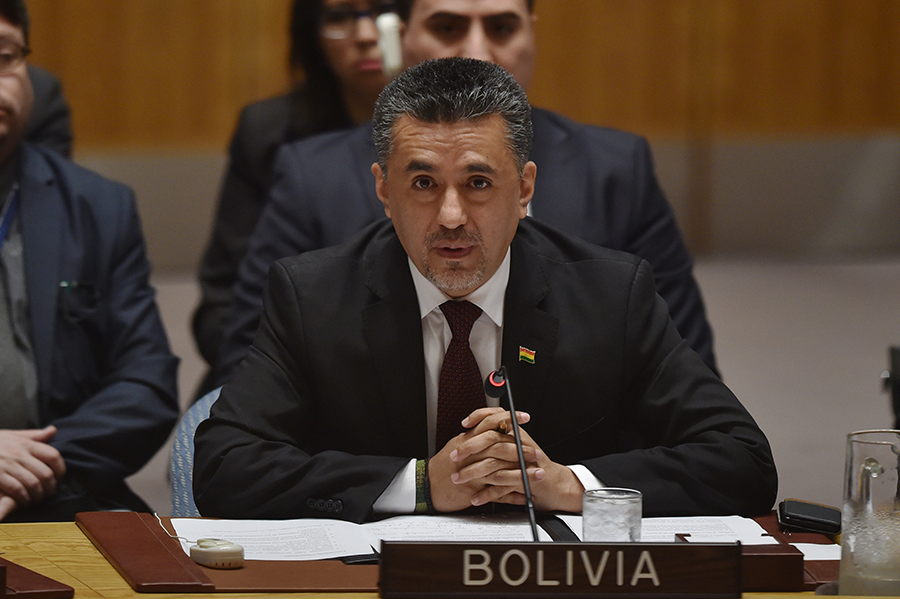Bolivia Ratifies Ban Treaty
Bolivia ratified the Treaty for the Prohibition of Nuclear Weapons on Aug. 6, marking the 25th ratification overall and the halfway point toward the 50 ratifications needed for the treaty’s entry into force.
 The date, exactly 74 years after the atomic bombing of Hiroshima, was selected by Bolivian ambassador Sacha Llorenti for its significance to nuclear disarmament activists. 70 states have now signed the agreement, which was opened for signature at the United Nations in 2017. It is the first international instrument to comprehensively ban the development, testing, production, stockpiling, stationing, transfer, use and threat of use of nuclear weapons. All states parties engaging in these activities are bound to submit and implement a plan to divest themselves completely of nuclear weapons upon ratification.
The date, exactly 74 years after the atomic bombing of Hiroshima, was selected by Bolivian ambassador Sacha Llorenti for its significance to nuclear disarmament activists. 70 states have now signed the agreement, which was opened for signature at the United Nations in 2017. It is the first international instrument to comprehensively ban the development, testing, production, stockpiling, stationing, transfer, use and threat of use of nuclear weapons. All states parties engaging in these activities are bound to submit and implement a plan to divest themselves completely of nuclear weapons upon ratification.
Although it has been dismissed by the nuclear-armed powers, as well as by states which benefit from nuclear security guarantees, the treaty's supporters hope that it will nonetheless pave the way for an emerging international legal norm against nuclear arms. More states are expected to ratify the treaty at a UN meeting in New York on Sept. 26, the International Day for the Total Elimination of Nuclear Weapons. —OWEN LeGRONE
